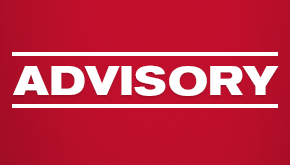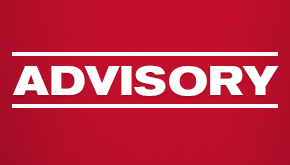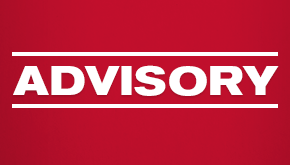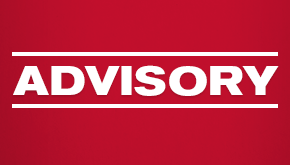EU Digital Markets Act and the Designation of Six Gatekeepers: Implications for the Technology Sector
On 6 September 2023, the European Commission took a significant step in regulating the digital landscape by designating six tech giants as “gatekeepers” under the EU Digital Markets Act (DMA). This landmark decision signals a new era of regulation for the technology sector and has far-reaching implications for both the designated companies and the broader digital sector. It is also likely to have an effect on investors’ attitudes toward investments in this sector.
The new rules will sit alongside the EU competition rules and will be enforced in tandem according to whichever regime is most appropriate in relation to the facts of the individual case. As the EU Commission recently made clear, enforcing the DMA does not translate into less antitrust enforcement, but it has acknowledged that the implementation of this legislation and the application of the competition rules will require close cooperation at the EU and national member states level.
The EU Digital Markets Act (DMA)
The DMA, a legislative framework first proposed in 2020, aims to establish a level playing field for major online platforms (“gatekeepers”) to foster innovation, growth and competitiveness online at an EU level and globally. Its primary focus is on addressing the dominance of a limited number of tech giants and creating more opportunity for smaller players in the market. The criteria for designating companies as gatekeepers are set out in detail in the legislation.
Under the DMA, a gatekeeper is defined as a provider of core platform services such as: online intermediation services, online search engines, online social networking services, video-sharing platform services, number-independent interpersonal communication services, operating systems, cloud computing services and advertising services, including any advertising networks, exchanges and any other advertising intermediation services.
A provider of core platform services, however, will only be designated as a gatekeeper if it meets the criteria set out in the legislation itself. These are that the company concerned has a size that impacts the internal market; it operates a core platform service which controls an important gateway for business users to reach end users; and it enjoys an entrenched and durable position in its operations.
New Standards of Conduct
The DMA includes various provisions and obligations designed to curb unfair restrictions or exclusionary conduct that create anti-competitive bottlenecks which distort digital markets and promote innovation and consumer choice.
The EU Commission will be tasked with enforcing the new rules. Any large online platform identified as a gatekeeper will have six months from designation to comply with the DMA, and for any infringement, the EU Commission could impose interim penalties and fines of up to 10% of a company's worldwide turnover, or 20% of such turnover in the event of repeated infringements. In cases where there is a systematic infringement of the DMA rules, defined as one where a company violates the rules at least three times in eight years, the EU Commission is empowered to open a market investigation and impose behavioural or structural remedies necessary to ensure the effectiveness of the obligations, including a ban on further acquisitions relevant to the infringement.
The Designation of Six Gatekeepers
On 6 September, the EU Commission officially designated six tech companies as gatekeepers: Alphabet (Google), Amazon, Apple, Facebook (Meta Platforms Inc.), Microsoft and ByteDance. These companies were selected based on their significant market power and their potential to act as gatekeepers, which can hinder competition and harm consumers according to the criteria outlined in the DMA.
Implications for the Technology Sector
Increased Regulation: The most immediate and evident consequence is that these six companies will face increased regulatory scrutiny. They will have to comply with a set of strict rules and obligations outlined in the DMA. This includes measures such as sharing data with competitors, allowing interoperability and providing clear information to users about how their data is used. They will have to comply with the provisions of the DMA by March 2024 and must send a compliance report to the EU Commission outlining how they propose to alter their business practices to ensure compliance.
Increased Competition: The DMA aims to foster a more competitive digital landscape by giving smaller players a fair chance to grow. With gatekeepers under greater regulatory scrutiny, new entrants may find it easier to gain a foothold in the market, which could lead to increased innovation.
Consumer Benefits: Consumers are likely to be the ultimate beneficiaries of the DMA. The increased transparency and data portability requirements will give users more control over their data and how it is used. In addition, fairer competition and more open markets should also lead to better services and more choices for consumers.
Innovation and Investment: While the gatekeepers may face regulatory hurdles, they will also be incentivized to innovate and invest in their services to maintain their competitive edge. This could lead to more robust and innovative digital platforms and services.
Global Impact: The DMA ushers in a new groundbreaking ex ante system of regulation for the digital sector. Once implemented, its approach is likely to be adopted in whole or in part by other countries and trading blocs that are facing similar challenges in regulating major tech companies. In addition, tech companies that do business in the EU may adopt similar practices worldwide to streamline compliance efforts.
Legal Challenges: It is likely that certain designated gatekeepers may challenge the DMA in courts, whether in relation to designation decisions over certain core services or other aspects of the EU Commission’s enforcement. These legal battles could last for years and could lead to changes in the DMA’s provisions or enforcement mechanisms. However, a more worrying trend for gatekeepers is the likelihood of private damage actions for breach of the provisions of the DMA in the national courts of the member states. Several member states are altering their national laws to allow such actions.
Investor Sentiment: The designation of gatekeepers could affect investor sentiment toward designated tech giants. Share prices and valuations may fluctuate as investors assess the regulatory risks associated with these companies.
Conclusion
The designation of six gatekeepers under the DMA on 6 September 2023 marks a significant turning point in the regulation of the technology sector. It is billed by the European Union as a crucial part of their policy for the digital economy to promote fair competition, protect consumer interests and ensure that digital platforms operate within a framework that prevents anti-competitive practices. The EU’s lead on digital platform regulation is also likely to see wider adoption in global markets.
As gatekeepers face increased regulatory scrutiny, businesses and consumers alike will be watching to see how these changes reshape the digital landscape in Europe as the compliance deadline of March 2024 approaches and beyond. Any noncompliance is likely to be met not just with regulatory enforcement action by the EU Commission but also possible actions for damages in national courts (both individual and collective) where member states have implemented necessary changes in their domestic legislation. This latter potential development will be of particular concern to gatekeepers.



































